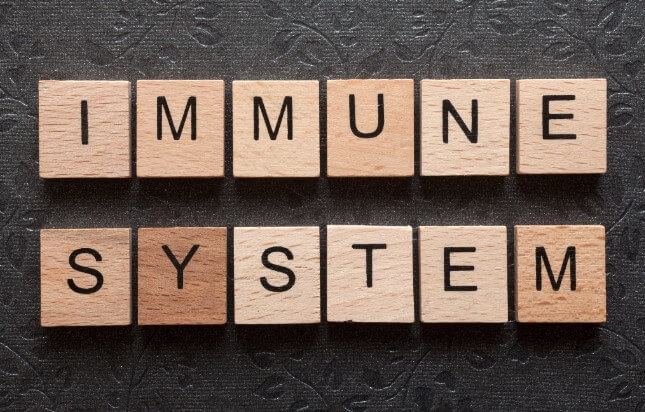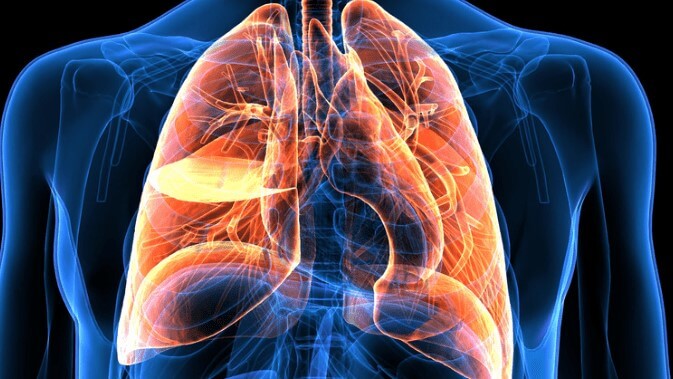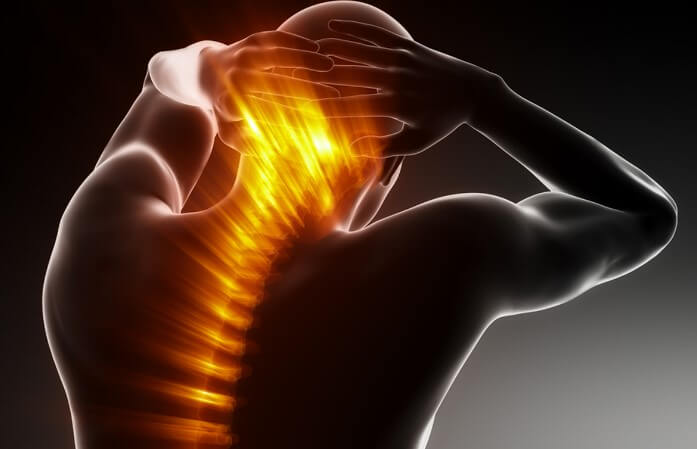
How Pain Affects Your Immune System
Pain is an unavoidable part of the human experience. Whether it’s a minor injury, chronic condition, or acute illness, pain can significantly impact our daily lives. However, beyond the immediate discomfort, pain has a profound effect on our overall health, particularly our immune system. Understanding how pain influences the immune system is crucial for managing health and well-being, especially for those dealing with chronic pain conditions.
Pain and the Immune System
To appreciate how pain affects the immune system, it’s important to first understand what these two systems are and how they function.
The immune system is our body’s defense mechanism against pathogens like bacteria, viruses, and other harmful agents. It consists of various cells, tissues, and organs that work together to identify and neutralize foreign invaders. A healthy immune system is essential for maintaining overall health, fighting off infections, and even preventing certain diseases like cancer.
On the other hand, pain is a complex sensation that can be both physical and emotional. It is the body’s way of signaling that something is wrong, often as a result of injury, illness, or stress. Pain can be acute (short-term) or chronic (long-term), and it can vary in intensity and duration. While acute pain is often a response to an immediate threat, chronic pain can persist for months or even years, sometimes without a clear cause.
The Link Between Pain and the Immune System
Research has shown that pain and the immune system are closely connected. When the body experiences pain, it triggers a series of responses in the immune system. This connection is primarily mediated by the nervous system, which communicates with immune cells through various chemical signals.
1. Inflammation and Immune Response
One of the most significant ways pain affects the immune system is through inflammation. Inflammation is the body’s natural response to injury or infection, and it plays a critical role in the healing process. When you experience pain, your body releases pro-inflammatory cytokines, which are proteins that help coordinate the immune response.
In the case of acute pain, this inflammatory response is beneficial. It helps to isolate the injury, prevent further damage, and initiate the healing process. However, in chronic pain conditions, the prolonged release of pro-inflammatory cytokines can lead to a state of chronic inflammation. This persistent inflammation can weaken the immune system, making the body more susceptible to infections and diseases.
2. Stress, Pain, and Immunosuppression
Pain is inherently stressful, and stress has well-documented effects on the immune system. When the body is in pain, it activates the hypothalamic-pituitary-adrenal (HPA) axis, a complex network that controls the stress response. This activation leads to the release of cortisol, a hormone that helps the body manage stress.
While cortisol is essential for regulating inflammation and immune responses, chronic pain can lead to prolonged cortisol release. Over time, elevated cortisol levels can suppress the immune system, reducing the body’s ability to fight off infections and heal properly. This immunosuppression can make individuals more vulnerable to illnesses and can exacerbate existing health conditions.
3. Impact on White Blood Cells
White blood cells (WBCs) are a crucial component of the immune system, responsible for identifying and attacking pathogens. Pain, particularly chronic pain, can affect the production and function of white blood cells. Studies have shown that individuals with chronic pain conditions often have altered WBC counts, which can compromise their immune function.
For example, chronic pain has been associated with a decrease in natural killer (NK) cells, a type of WBC that plays a vital role in destroying virus-infected cells and tumor cells. A reduction in NK cell activity can weaken the body’s defense against infections and increase the risk of developing cancer.
4. Pain-Induced Changes in Immune Cell Distribution
Pain can also lead to changes in the distribution of immune cells throughout the body. Research has shown that during pain, immune cells are often redistributed to areas of the body where they are needed most, such as the site of injury. While this redistribution is necessary for immediate immune responses, it can also lead to a temporary depletion of immune cells in other parts of the body, making them more vulnerable to infection.
In chronic pain conditions, this constant redistribution can result in an imbalance in immune cell availability, further weakening the immune system over time.

SCHEDULE A CONSULTATION
Experience a pain-free life! Call us at (727) 268-0172
Chronic Pain and Immune System Dysfunction
Chronic pain is particularly detrimental to the immune system. Unlike acute pain, which is temporary and often resolves with treatment, chronic pain can persist for months or even years. This prolonged experience of pain can lead to a range of immune system dysfunctions, making individuals more susceptible to infections, autoimmune diseases, and even cancer.
1. Autoimmune Diseases
Chronic pain has been linked to the development of autoimmune diseases, where the immune system mistakenly attacks the body’s own tissues. Conditions like rheumatoid arthritis, lupus, and multiple sclerosis are examples of autoimmune diseases that are often associated with chronic pain.
The exact mechanisms behind this connection are still being studied, but it is believed that chronic inflammation, stress, and immune dysregulation play a significant role. Inflammation caused by chronic pain can trigger the immune system to attack healthy tissues, leading to the development of autoimmune conditions.
2. Increased Susceptibility to Infections
Individuals with chronic pain are often more susceptible to infections. This increased vulnerability is partly due to the immunosuppressive effects of chronic stress and pain, as well as the alterations in white blood cell function and distribution. Common infections, such as respiratory infections, urinary tract infections, and skin infections, may occur more frequently in those with chronic pain.
Moreover, the body’s ability to mount an effective immune response to infections can be compromised, leading to prolonged illness and a slower recovery process.
3. Impact on Wound Healing
Pain can also interfere with the body’s ability to heal wounds. Wound healing is a complex process that involves the immune system, and chronic pain can disrupt this process. The persistent release of stress hormones and inflammatory cytokines can delay wound healing, making it more difficult for the body to repair damaged tissues.
This delayed healing can lead to complications such as infections, chronic wounds, and increased scarring. For individuals with chronic pain conditions, managing pain effectively is essential for promoting proper wound healing and overall recovery.
The Psychological Impact of Pain on the Immune System
Pain is not just a physical sensation; it also has significant psychological effects. Chronic pain is often associated with conditions like anxiety, depression, and sleep disturbances, all of which can further impact the immune system.
1. Depression and Immune Function
Depression is a common comorbidity in individuals with chronic pain. The relationship between depression and the immune system is complex, but research suggests that depression can lead to immune system dysregulation. For example, depression has been associated with increased levels of pro-inflammatory cytokines, which can exacerbate pain and further weaken the immune system.
Conversely, chronic pain can contribute to the development of depression by affecting neurotransmitter levels and altering brain function. This bidirectional relationship between pain and depression creates a vicious cycle that can significantly impair immune function and overall health.
2. Anxiety and Immune Suppression
Anxiety is another psychological condition that commonly accompanies chronic pain. Like depression, anxiety can have a profound impact on the immune system. The chronic activation of the stress response in individuals with anxiety can lead to prolonged cortisol release, resulting in immune suppression.
Anxiety can also increase the perception of pain, leading to a heightened stress response and further weakening of the immune system. Managing anxiety is therefore crucial for individuals with chronic pain to prevent further immune system compromise.
3. Sleep Disturbances and Immune Health
Sleep is essential for maintaining a healthy immune system. During sleep, the body undergoes important processes that help repair tissues, produce immune cells, and regulate immune function. However, chronic pain often leads to sleep disturbances, such as insomnia or poor-quality sleep.
The lack of restorative sleep can have a significant impact on immune health. Studies have shown that sleep deprivation can reduce the production of immune cells, impair immune responses, and increase the risk of infections. For individuals with chronic pain, addressing sleep disturbances is vital for supporting immune function and overall well-being.

SCHEDULE A CONSULTATION
Experience a pain-free life! Call us at (727) 268-0172
Strategies for Managing Pain and Supporting Immune Health
Given the complex relationship between pain and the immune system, managing pain effectively is crucial for maintaining a healthy immune system. Here are some strategies that can help:
1. Pain Management Techniques
Effective pain management is essential for minimizing the impact of pain on the immune system. This can include a combination of pharmacological treatments (such as pain relievers, anti-inflammatory drugs, and antidepressants) and non-pharmacological therapies (such as physical therapy, acupuncture, and cognitive-behavioral therapy).
Chronic pain management should be tailored to the individual’s needs and may require a multidisciplinary approach involving healthcare professionals from various fields.
2. Stress Reduction
Reducing stress is crucial for supporting immune health in individuals with chronic pain. Techniques such as mindfulness meditation, deep breathing exercises, yoga, and relaxation therapy can help manage stress levels and reduce the negative impact of pain on the immune system.
3. Psychological Support
Addressing the psychological aspects of chronic pain, such as anxiety and depression, is important for maintaining a healthy immune system. Therapy, counseling, and support groups can provide emotional support and help individuals develop coping strategies to manage pain-related psychological issues.
4. Improving Sleep Quality
Promoting good sleep hygiene is essential for individuals with chronic pain. Strategies such as maintaining a regular sleep schedule, creating a comfortable sleep environment, and avoiding stimulants before bedtime can help improve sleep quality and support immune function.
5. Healthy Lifestyle Choices
Maintaining a healthy lifestyle is key to supporting immune health. This includes eating a balanced diet rich in nutrients, staying physically active, avoiding smoking and excessive alcohol consumption, and staying hydrated. These lifestyle choices can help strengthen the immune system and improve overall health.
Conclusion
The relationship between pain and the immune system is complex and multifaceted. While pain is a natural response to injury or illness, chronic pain can have detrimental effects on immune function, leading to increased susceptibility to infections, autoimmune diseases, and impaired wound healing. Additionally, the psychological impact of pain, including stress, anxiety, and depression, can further weaken the immune system.
For individuals dealing with chronic pain, understanding how pain affects the immune system is crucial for managing their health and well-being. By adopting effective pain management strategies, reducing stress, and making healthy lifestyle choices, it is possible to minimize the negative impact of pain on the immune system and improve overall quality of life. At Florida Medical Pain Management, we are committed to providing comprehensive care and support to help you manage pain and protect your immune system.
Our Treatment Services
Florida Medical Pain Management’s top priority is serving our patients’ needs and creating long-lasting relationships with them. Our treatments include:
- Treatment for Neuropathy
- Arthritis Management
- Back Pain Medication
- Chronic Pain Treatments
- Epidural Injection
- Regenerative Medicine
- Hip Pain Medication
- Ketamine Infusion Therapy
We want to help patients live more fulfilling and productive lives by effectively managing their pain. Florida Medical Pain Management also provides home therapy and many more. Click here to see our other services.















